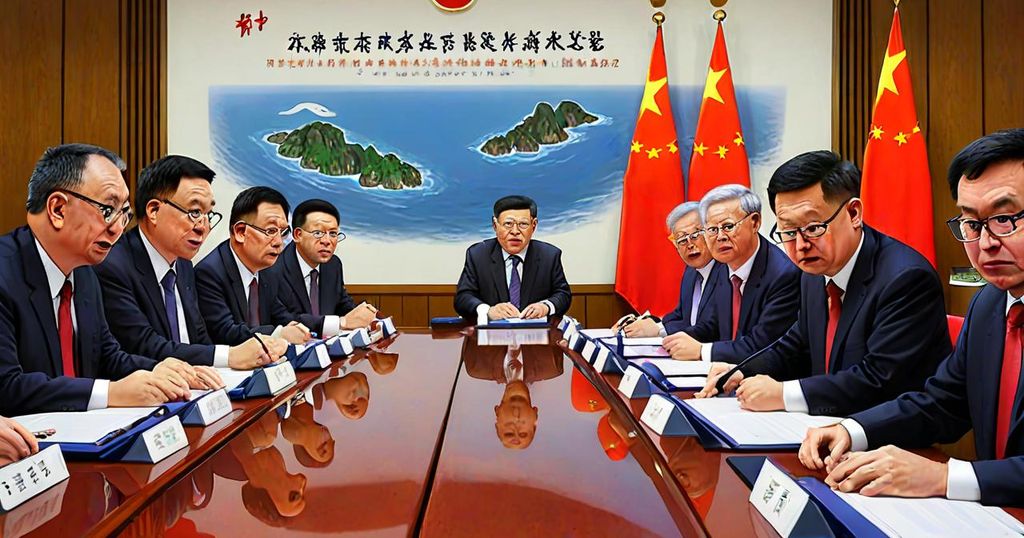China is currently confronted with a formidable challenge in regard to garnering public support for its assertions in the South China Sea. Scholars have recently underscored the imperative need for “narrative construction and discourse building” to effectively uphold China’s rights and interests in the region. Wu Shicun, founder of the National Institute for South China Sea Studies, underscored the critical nature of constructing narratives during a seminar held in Hainan province. According to Wu, this practice is essential both in the present moment and for future undertakings connected to the South China Sea.
The dispute over the South China Sea involves multiple countries, with China staking its claim to a substantial portion of the area based on historical activities and records. To address the challenges concerning public perception and opinion, Wu articulated that China is ensnared in an “increasingly arduous battle.” He also noted that other claimants in the region are amplifying their collaboration with foreign forces on historical and legal matters related to the South China Sea.
Despite Beijing’s disregard of a Hague ruling as “null and void,” countries such as the Philippines, Vietnam, Malaysia, and Brunei, along with the United States and its allies, have persistently urged China to adhere to international law. Yi Xianliang, a former ambassador to Norway, labeled the 2016 ruling as a “bad joke” and underscored the necessity to scrutinize its inadequacies in an effort to avert similar occurrences in the future.
Wu also accused the United States and its allies of taking sides and providing support to those who oppose China in the South China Sea, which he perceives as a violation of China’s rights. Furthermore, he highlighted the prevalence of “peculiar theories” and purposeful distortions of the South China Sea’s history in the global academic community.
In response to these challenges, Wu called upon historians and legal scholars to assist in reinstating the accurate background on South China Sea issues from historical and legal perspectives. He also emphasized that the United Nations Convention on the Law of the Sea should not supersede countries’ historical titles and rights. Wu recommended that scholars utilize foreign manuscript collections, maritime histories, and Western naval literature to substantiate China’s claims and furnish a robust rebuttal to false narratives.
In conclusion, the seminar in Hainan province illuminated the importance of constructing narratives to safeguard China’s claims in the South China Sea. This underscores the intricate nature of the situation and the conscientious efforts being undertaken to uphold China’s rights and interests in the region.

Leave a Reply